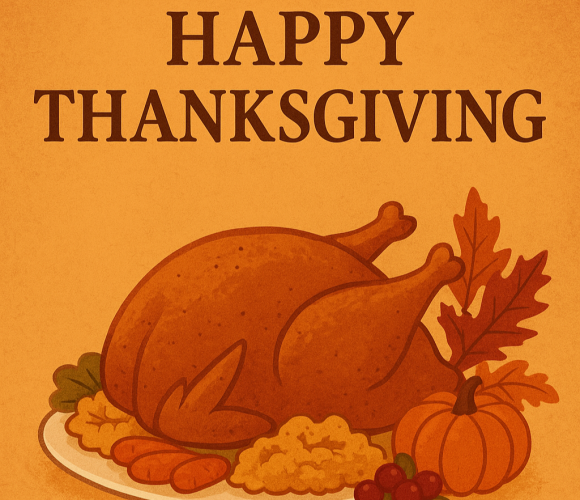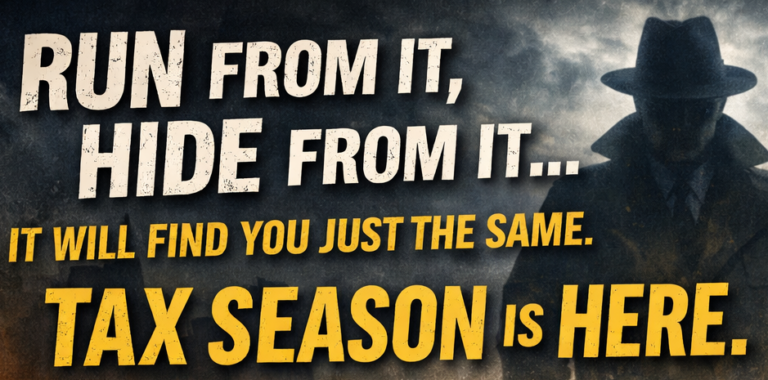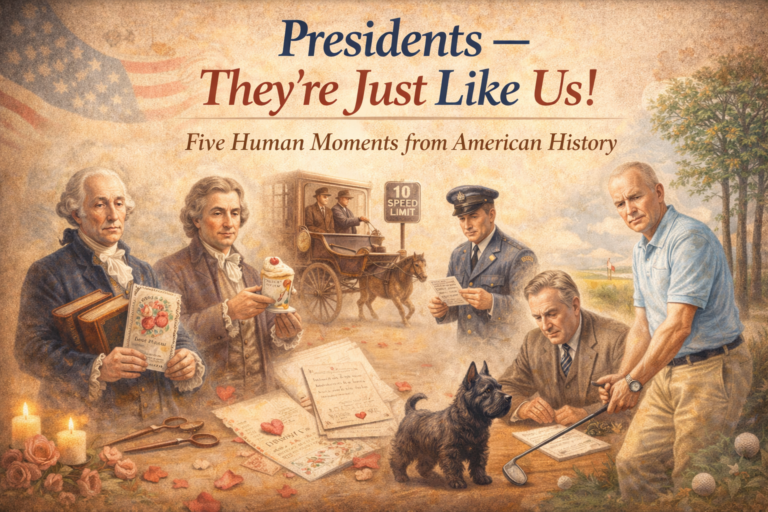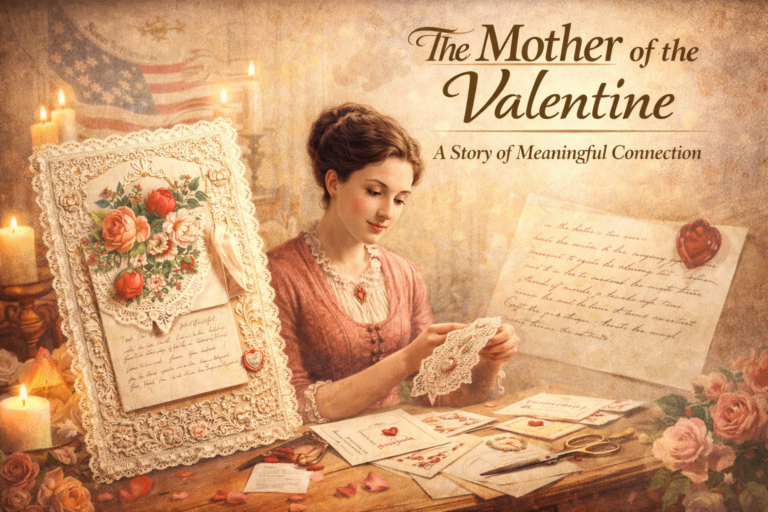A Thanksgiving Story of Gratitude We Love to Remember

Happy Thanksgiving!
A few years ago, we came across a short Thanksgiving story. Set back in the 1930s, the author is unknown, but we found it to be a great reminder of what makes Thanksgiving such a special day…beyond the buckled Pilgrim hats, football games, and tables groaning under the weight of all that food. It’s called Porcupine Meatballs, and this year we thought it would be a good time to share it with you. We hope you enjoy it as much as we did.
On behalf of everyone here at Minich MacGregor Wealth Management, we wish you and yours a very happy Thanksgiving!
Porcupine Meatballs
Anonymous
1933 was a hard year. F.D.R. had been forced to shut down the banks, and the soup lines in Chicago were especially bad. I do remember that. Otherwise, the days all blended together in a gray fog of trying to get by; trying to maintain a little dignity while too many folks around us were losing theirs. I think that’s about the time we started calling it “the Depression,” or maybe a little earlier.
Next year, though, things looked up a little. I moved north to Wisconsin to be closer to family, and I was lucky enough to get a job working for Mr. Nelson, who ran the local market. The days got a bit brighter. I can remember more of ‘em, anyways. Especially Thanksgiving.
That first Thanksgiving I was there, people came in to buy what they could: Potatoes, flour, lard. Maybe an egg or two. And those who could afford ‘em bought a turkey. (Usually a small one.)
The day before Thanksgiving, a boy came in. Small and scrawny, he couldn’t have been more than ten, with the hollowed-out cheeks and slightly sunken eyes of one who rarely has enough to eat. (A sight that was all too common in those days.) He handed me a short list, then gazed hungrily at the last few turkeys on display, most already bought and paid for but not yet picked up.
Mr. Nelson noticed. “Does your mother want a turkey, too, Frankie?” he asked.
“No, sir,” said Frankie. “Ain’t got the money for that, and ma said not ‘ta waste a nickel.”
“Well, how much do you have left?”
“Just nineteen cents, sir.” The boy’s shoulders drooped. “I been workin’, sellin’ papers on Sundays and odd jobs for Mrs. Stansbury other days, but….”
I winced. Nineteen cents was barely enough to buy one pound of an eight-pound bird.
“Well, what are you planning to eat instead?” Mr. Nelson asked.
“Just what’s in that basket there, sir,” said the boy, looking sadder still.
“What? No meat?”
“Ma says we still have a bit of that chuck we bought last week.”
Mr. Nelson rubbed his chin. “Tell you what. You come back here first thing tomorrow morning. I’ll have a surprise for you. Alright?”
The boy thanked him, though the sad look on his face remained. After he left, Mr. Nelson turned to me. “Poor Frankie,” he said. “That chuck will be hard as old leather by now. Wouldn’t be fit for pot roast, and a man should have meat on his table for Thanksgiving.”
“Man?” I asked, wondering if we were talking about the same skinny kid who’d just left.
Mr. Nelson smiled. “I know that family. Young Frankie’s been trying so hard to be the man of the house ever since his father died. Now it’s time he felt like one.”
The next morning, Frankie showed up as ordered. Mr. Nelson clapped him on the shoulder. “Do I have a treat for you, young man.”
Frankie looked confused. “Sorry, sir, I still don’t have the money for a turkey. Or a ham.”
“Not turkey, Frankie. Better.”
“Better’n turkey, sir?” The boy sounded skeptical. I couldn’t blame him; I was skeptical, too.
“Oh, yes. Something almost nobody gets to eat at Thanksgiving. A delicacy.”
Now the boy looked excited. “What is it?” he asked breathlessly.
Mr. Nelson leaned down with a conspiratorial smile on his face. “Porcupine,” he whispered.
Frankie’s eyes went wide. “Porcupine? I ain’t never heard of anyone eatin’ porcupine.”
“That’s because it’s so rare. Normally, I keep it all for myself, but I’ve a little bit extra, which I am willing to sell to you on account of you being such a good customer.”
Stooping behind the counter, Mr. Nelson produced a tray. On it were twenty meatballs, each covered with a dozen brown spikes. They were so pointed and prickly, for a second, I thought they really were made of porcupine! But when I looked closer, I saw that the “spikes” were really just grains of rice standing on their ends.
Now Frankie’s eyes were practically popping out of his head in excitement. “Gosh, I never thought I’d get to serve my ma porcupine for Thanksgiving! How much?”
“Tell you what, Frankie,” Mr. Nelson said. “Porcupine’s what you might call an acquired taste; not everyone likes it. So, you take these home and tell your sisters you’ve been working so hard, you were able to get porcupine this year, the last batch in the store. If you like it, just give me a wink the next time you see me.”
“I will, sir, thanks!”
The boy left. I looked at my boss quizzically. “Porcupine?”
He laughed. “Just some ground beef mixed with onions, rice, and tomato soup. Quite good, actually. His mother will know, of course, but Frankie and his sisters will feel like the richest kids in town.”
Time went by. To my surprise, Frankie turned up again the following Thanksgiving, asking if Mr. Nelson had any more “porcupine meatballs,” but this time, insisted on paying “full price.” I smiled, wondering how long the ruse would last. But the next year, Frankie came again. And the next, and the next, and the next. By then, even Mr. Nelson was getting puzzled.
“Ain’t that odd?” he said. “I know the family is better off now. And turkeys are cheaper than ever.” But Frankie continued the tradition each year, even through high school.
The years passed. Eventually, I went back to Chicago and lost touch with Mr. Nelson, but one Thanksgiving in the early fifties, I returned to visit family. While there, I was told that my old employer was ill and bed-ridden. After dinner, I decided to pay him a visit. He welcomed me warmly, but I could see in his face how sad he was. Age had forced him to retire, and his wife had long since passed away. Looking at him now, he was more bone than brawn, gaunt and frail.
“Can’t even celebrate Thanksgiving proper this year,” he grumbled. “Too weak to lift the bird.”
I tried to take his mind off of it, and we yarned about old times until he fell asleep. Then I heard a knock at the door. I went to answer it and saw on the doorstep a man in a naval uniform, his hat in one hand, a basket in the other.
“Is Mr. Nelson home?” he asked. I replied that he was, but had fallen asleep; could the man come back later? “Yes,” he said, “but in the meantime, please give him this.” He handed me the basket and a card.
I found Mr. Nelson awake and sitting up when I returned. I set the basket next to his bed while he read the card. His eyes widened with every word. Then, he handed the card to me while he reached for the basket. This is what it said:
Dear Mr. Nelson. I heard you weren’t feeling too fine this Thanksgiving. I can remember a Thanksgiving where I wasn’t feeling too fine either. No dad, no money, and no turkey. But that Thanksgiving ended up being the best one we ever had. We were so grateful for something to eat! That’s why we always ate the same thing in my house every single year after, and we eat it still. It reminds us how much we have to be thankful for in a way no turkey ever could. This year, I thought maybe you could use the reminder, too…because I’m mighty thankful for you. Your friend, Frank.
Suddenly, Mr. Nelson laughed. For a moment, the years seemed to fall from his face. From the basket, the scent of porcupine meatballs was rising.
P.S. We did a little research and found that “Porcupine Meatballs” really were a thing in the 1930s! The Library of Congress even preserved a recipe for them, which you can find here: https://www.loc.gov/resource/gdcmassbookdig.conservationreci00mobi_0/?sp=87.





